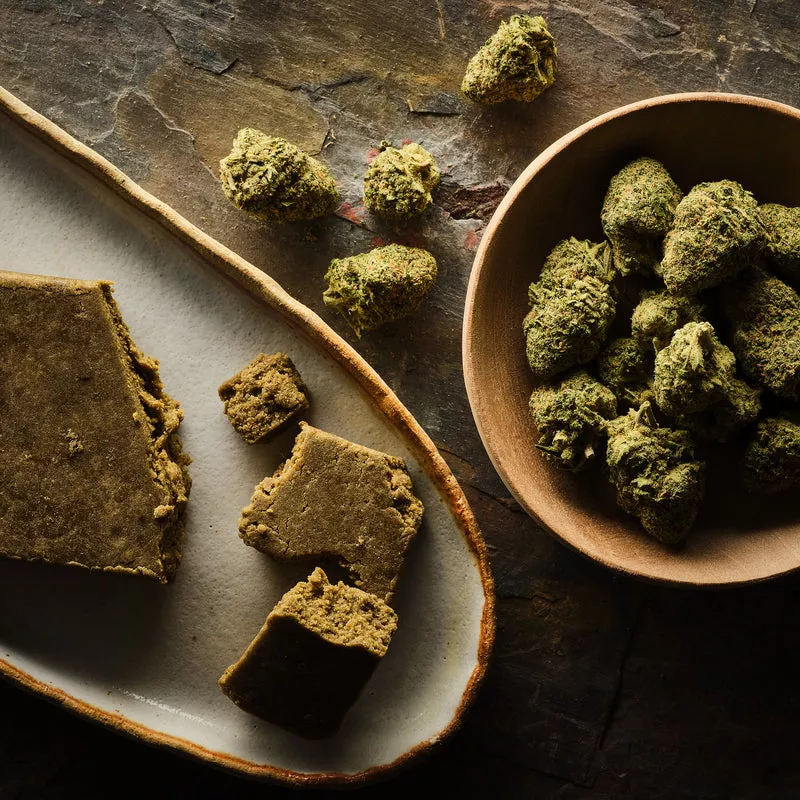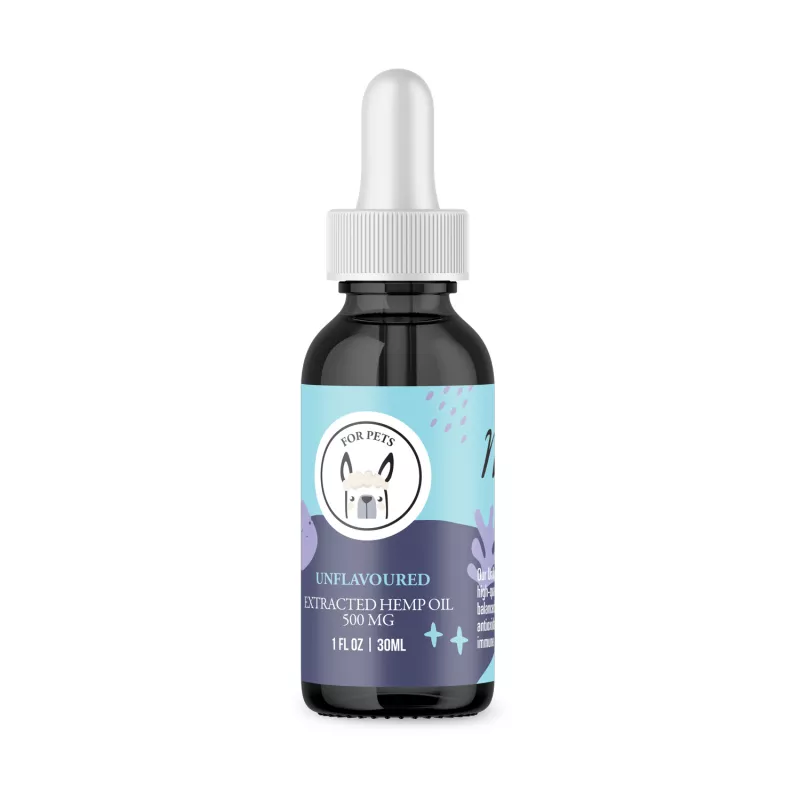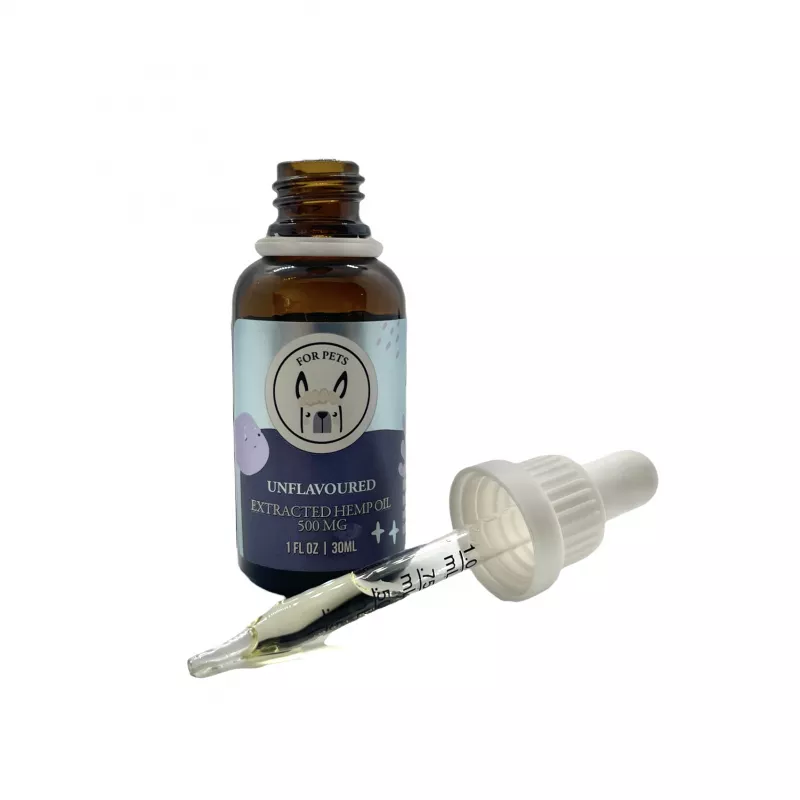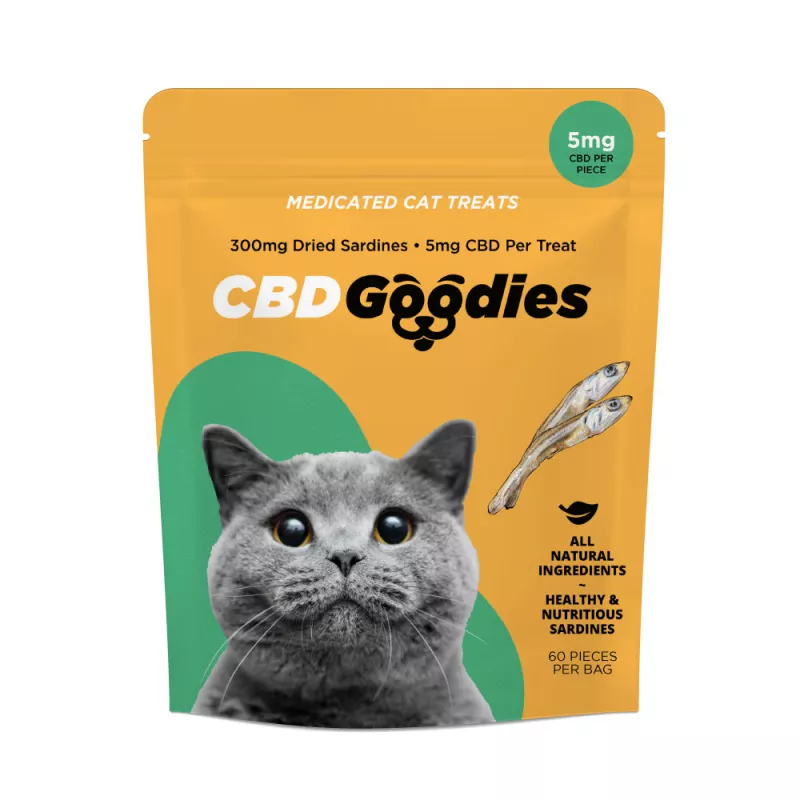- Shop All
- Type
- (144) THC>
- (75) CBD>
- Need
- Sleep>
- (21) Pain>
- (10) Anxiety>
- (6) Pets>
- (88) Edibles
- (14) CBD Edibles>
- (60) THC Edibles>
- (3) Ratio Edibles>
- (33) Hybrid Edibles>
- (87) Vegan>
- (5) Beverages>
- Strain
- (29) Indica>
- (24) Sativa>
- (47) Hybrid>
- (14) Tinctures
- (5) Anxiety Tinctures>
- (9) CBD Tincture>
- (1) Pain Tincture>
- (4) Ratio Tincture>
- (4) Sleep Tincture>
- (4) THC Tincture>
- (4) Capsules
- (1) CBD Capsules>
- (0) THC Capsules>
- (3) Ratio Capsules>
- Foggers
Best CBD for Pets Guide - Everything You Should Know in 2024
Olivia St JamesJune 15, 2023LatestContents
- What Dog and Cat Health Problems Can CBD Oil Treat?
- How Long Does It Take for CBD to Relax My Pet?
- Can CBD Cause Problems in Pets?
- How Many Drops of CBD Should a Pet Have?
- Is CBD Addictive for Pets?
- Types of CBD Supplements for Pets
- Top CBD oil for Pets products
- Unflavoured Cbd Pet Tincture - Natuur
- Cbd Cat Treats - Cbd Goodies
- Final Notes
CBD oil for pets has gained popularity due to its potential benefits. As a pet owner, it's essential to understand how CBD oil can help your furry companions.
Whether you're considering CBD drops, CBD tinctures, or CBD treats, in this CBD For Pets beginner's guide, we will explore the various aspects of CBD, including its potential to address common pet health problems.
This guide will provide you with the necessary information to make informed decisions about using CBD for your pets.
What Dog and Cat Health Problems Can CBD Oil Treat?
CBD oil has shown promise in addressing several health problems in dogs and cats. Many pet owners have reported positive results when using CBD drops, CBD tinctures, or CBD treats for their pets.
Some common health issues CBD oil may help treat include:
- Anxiety
- Pain
- Inflammation
- Seizures
- Digestive issues.
For instance, CBD drops can help ease anxiety and promote relaxation in pets. CBD treats or CBD tinctures may assist in managing pain and reducing inflammation.
Moreover, CBD oil has demonstrated potential in reducing the frequency and severity of seizures in some pets.
While further research is necessary, many pet owners have found CBD oil to be a beneficial addition to their pets' wellness routine.
How Long Does It Take for CBD to Relax My Pet?
The time it takes for CBD to take effect in pets and induce relaxation can vary. Factors such as the pet's size, metabolism, and the form of CBD administered (such as CBD drops or CBD treats) influence the onset and duration of effects.
Generally, CBD begins to take effect within 30 minutes to an hour after administration. However, some pets may experience faster or slower responses.
It's crucial to start with a low dosage and gradually increase as needed while monitoring your pet's response.
Additionally, the type of CBD product used may affect the speed of relaxation. CBD drops are often quicker to absorb, while CBD treats may take slightly longer due to digestion.
By carefully observing your pet's behavior and adjusting the dosage accordingly, you can determine the optimal CBD routine for their relaxation needs.
Can CBD Cause Problems in Pets?
CBD is generally considered safe for pets. However, it's essential to be aware of potential side effects.
While uncommon, some pets may experience mild side effects such as drowsiness, dry mouth, or diarrhea. These effects are typically temporary and subside as the pet adjusts to the CBD regimen.
It's important to note that CBD products, whether in the form of CBD drops, CBD treats, or CBD tinctures, should be derived from high-quality sources and undergo third-party testing to ensure purity and safety. In addition only CBD Isolate is recommended especially for pets like dogs, some research suggest THC infused products can potentially cause liver damage to dogs.
Additionally, it's crucial to consult with a veterinarian before starting CBD treatment to ensure it's suitable for your dog's specific situation. They can provide personalized recommendations and guidance tailored to your dog's health needs.
How Many Drops of CBD Should a Pet Have?
Determining the appropriate CBD dosage for pets involves several factors, including:
- Pet's size
- Weight
- Individual needs.
CBD products, including CBD drops and CBD tinctures, often come with dosage instructions based on the pet's weight. These guidelines can provide a starting point. It's recommended to begin with a low dosage and gradually increase until the desired effects are achieved.
Monitoring your pet's response and consulting with a veterinarian can help reach a tailored dosage.
Recommended reading: Do Vets Recommend CBD for Dogs?
For CBD treats, the packaging typically includes specific dosage instructions based on the treat's potency and the pet's weight. By following these guidelines and adjusting as necessary, you can ensure your pet receives an appropriate and effective CBD dosage.Make use of our very helpful dosage calculator!
Is CBD Addictive for Pets?
Whether you opt for flavored CBD oil, unflavored CBD oil, CBD drops, or CBD treats, rest assured that CBD is a safe and non-addictive option for your pets.
CBD derived from hemp, including CBD drops, CBD tincture, and other CBD products for pets contains only CBD isolate. As a result, CBD is non-addictive and does not produce a "high" in pets.
It's important to choose high-quality CBD products specifically formulated for pets, this way, you can provide your pets with the potential benefits of CBD.
Types of CBD Supplements for Pets
CBD supplements for pets come in various forms, each offering unique advantages and considerations.
CBD drops and CBD tinctures are popular options, allowing for precise dosing and ease of administration. You can add drops directly to your pet's food or place them under their tongue for quicker absorption.
CBD treats provide an alternative method of administration, often containing specific dosages for convenience. They come in various flavors and formulations, such as bacon CBD treats for dogs and CBD treats for cats.
Additionally, CBD balms or topicals can be applied directly to your pet's skin to target specific areas of discomfort or inflammation.
Some pets may prefer the taste and texture of flavored CBD oil or CBD treats, while others may prefer unflavored options. Experimenting with different forms and flavors can help determine your pet's preferences and ensure they receive the benefits of CBD in a way they enjoy.
Top CBD oil for Pets products
1 Natuur | Unflavoured CBD Pet Tincture
Natuur unflavored CBD Pet Tincture offers a convenient and effective way to provide CBD benefits to picky pets.
Formulated with 500mg CBD per 30mL of CBD isolate, it ensures a pure and potent dose of CBD without any additional flavors.
By incorporating the Unflavored CBD Pet Tincture into your pet's routine, you can provide the benefits of CBD, essential fatty acids, and antioxidants, even for the most selective pets.
In addition Natuur ingredients are Lab-Tested, Organic, Vegan, Gluten-Free, and Cruelty Free, making it the ideal product for pet lovers!
2 Natuur | Bacon CBD Pet Tincture for Dogs
By incorporating the Bacon CBD Pet Tincture for Dogs into your dog's routine, you can provide the benefits of CBD in a tasty and dog-friendly way, promoting their overall well-being.
This tincture features a yummy bacon flavor that dogs love, making it easy to administer and enjoyable for them to consume.
Furthermore is specially designed for dogs and does not contain any animal ingredients, artificial colors making it suitable for canine companions with dietary sensitivities.
It comes in two presentations; small (125mg CBD per 30mL) and large dogs (750mg CBD per 30mL), ensuring appropriate dosing based on their size and needs.
3 CBD Goodies | CBD Cat Treats
CBD Cat Treats by CBD Goodies offers 60 natural dried sardines, providing a delicious flavor that cats find irresistible.
Each treat is infused with CBD isolate (5mg CBD per piece) and free from artificial colors and additives
This treat is convenient and enjoyable for your feline companion, and it ensures that he receives all of the well-known CBD benefits.
Final Notes
CBD oil can be a valuable addition to your pet's wellness routine. By considering the potential benefits of CBD drops, CBD tinctures, and CBD treats, you can address various health problems in your furry companions.
However, it's essential to consult with a veterinarian before starting any CBD treatment. They can provide personalized recommendations based on your pet's specific needs and ensure their safety and well-being.
Remember to choose high-quality CBD products, whether in the form of flavored or unflavored CBD oil, CBD drops, or CBD treats, and follow dosage instructions carefully.
With the right approach and guidance, CBD can be a natural and effective option to support your pets' overall health and happiness.
0/5 (0 Reviews)Latestfrom B+FBe the first to know about exciting new products, special events, seasonal offers, and much moreOur Collective
Wellness to your doorstepCopyright © 2024 All Rights Reserved | BIRCH + FOG[gtranslate]Save your cart?
x














